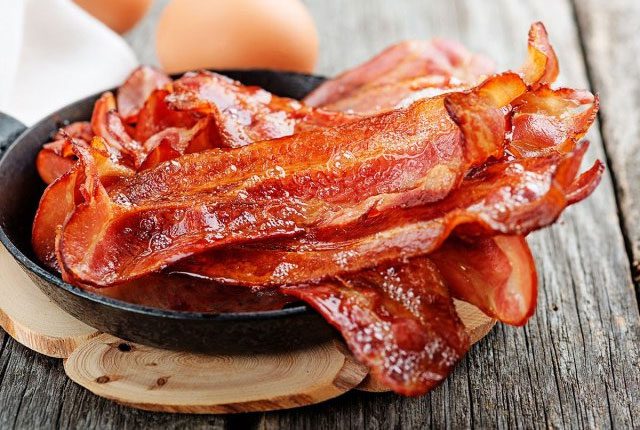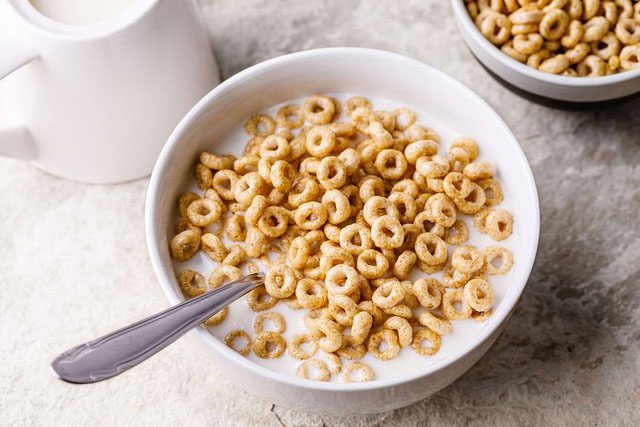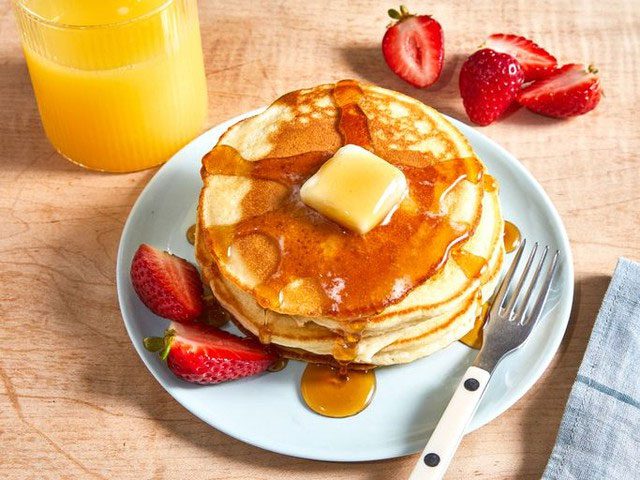Experts emphasize the importance of breakfast. Breakfast is the first meal you have after a long night of fasting, making it the primary source of glucose needed to boost energy levels and alertness.
Consequently, breakfast should help stabilize blood sugar levels, gradually release energy, and provide other essential nutrients.
Recently, a gastroenterologist warned that some breakfast foods can negatively impact your energy levels and pose other health risks.
Breakfast is the first meal you have after a long night of fasting, making it the primary source of glucose needed to boost energy levels and alertness.
Dr. Saurabh Sethi, a gastroenterologist based in California, USA, recently took to TikTok to highlight “breakfast foods to avoid“. He also revealed his personal favorite breakfast.
3 Unhealthy Breakfast Foods
1. Bacon
Dr. Sethi warns that bacon, which is highly processed, is loaded with unhealthy fats and nitrates.
Worryingly, nitrates are linked to stomach and colorectal cancer. A study published in the journal Nature showed that a substance in this food promoted cancer tumor growth in mice.

Dr. Sethi warns that bacon, which is highly processed, is loaded with unhealthy fats and nitrates.
With many types of bacon available in local supermarkets, you might hope for an exception. Unfortunately, Dr. Sethi cautions that most products sold in grocery stores can negatively impact health.
Cardiologist Abeer Berry, who works in the USA, agrees with Dr. Sethi. She advises individuals with high cholesterol to avoid bacon and other processed meats.
Dr. Berry explains: “You should avoid items like bacon and sausage; any high-fat dairy products such as butter or cheese.”
2. Packaged Breakfast Cereals and Granola
Packaged breakfast cereals and granola often contain high levels of added fats and sugars (though granola can differ as it may contain some healthy ingredients like fruits and nuts).
In some cases, the type of oil used in granola is coconut oil, which can lead to increased cholesterol levels.

Packaged breakfast cereals and granola often contain high levels of added fats and sugars.
Therefore, Dr. Sethi recommends opting for muesli instead of the two breakfast options above. Muesli is an uncooked cereal (usually oats) that is soaked in milk or juice overnight and then eaten with fruits and nuts. Granola, on the other hand, is made by mixing ingredients like nuts, oats, and dried fruits with oil and sweeteners (usually honey, maple syrup, or cane sugar) before baking them together.
3. Regular Pancakes
Similar to packaged breakfast cereals, Dr. Sethi warns that pancakes often contain high amounts of sugar, making them a poor breakfast choice.

Pancakes often contain high amounts of sugar, making them a poor breakfast choice.
Furthermore, they lack fiber and do not provide adequate nutritional value. Dr. Sethi adds, “Instead, consider products made from whole wheat and eggs.”
If you need inspiration for a healthy breakfast, Dr. Sethi reveals that his favorite dish is an omelet with vegetables and sourdough bread (a type of bread made from natural yeast) alongside black coffee or tea.
What Should You Eat for Breakfast?
Breakfast is the most important meal of the day, providing energy after a long night and kickstarting your body’s metabolism. Therefore, consuming healthy foods for breakfast is crucial. Here are the top 10 foods you can eat in the morning:
1. Eggs: Eating eggs for breakfast not only increases satiety, reducing calorie intake at the next meal, but also helps maintain stable blood sugar and insulin levels. Egg yolks also contain lutein and zeaxanthin, which help prevent eye disorders.
2. Greek Yogurt: Greek yogurt is a delicious, nutritious option. It is high in protein and can help control weight.
3. Coffee: Coffee is rich in caffeine, which can improve mood, alertness, and work performance. It also boosts metabolism and burns fat. However, limit added sugars and choose low-fat or plant-based milk when preparing coffee.
4. Oatmeal: Oatmeal is a great choice. It is high in fiber, helping to maintain stable blood sugar and providing long-lasting energy.
5. Berries: Berries such as strawberries and blueberries are rich in antioxidants and vitamin C.
6. Chia Seeds: Chia seeds are high in fiber, omega-3 fatty acids, and protein. Add them to yogurt or smoothies.
7. Whole Grain Bread: Whole grain bread provides fiber and essential nutrients.
8. Leafy Greens: Leafy greens are rich in vitamins and minerals that are beneficial for health.
9. Bananas: Bananas are high in potassium and vitamin B6, which help maintain cardiovascular and nervous system health.
10. Unsweetened Milk: Unsweetened milk provides calcium and protein.
Remember to choose light, nutrient-rich, and easy-to-digest foods to start your day with full energy.


















































